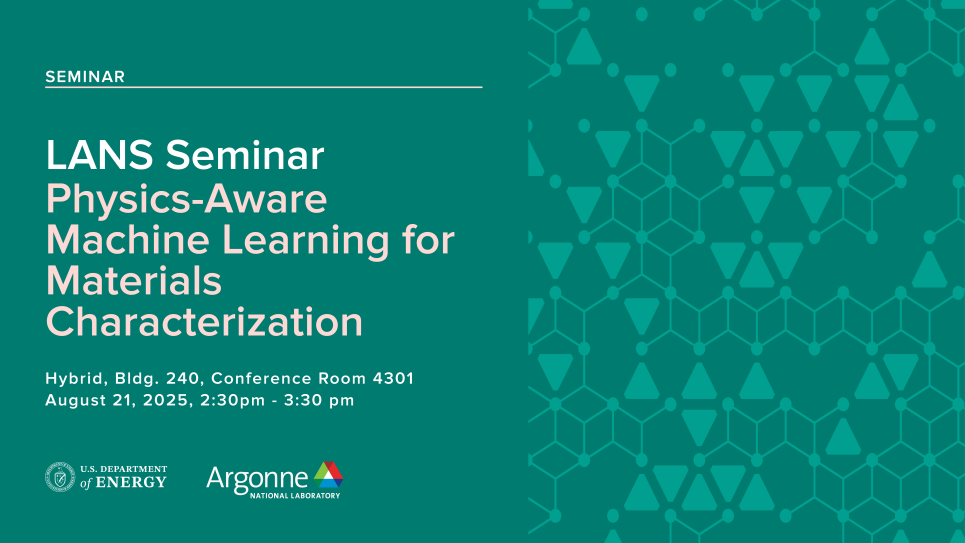
Physics-Aware Machine Learning for Materials Characterization
Recent advances in materials characterization techniques and instrumentation are enabling the collection of increasingly sophisticated time-resolved datasets, creating the possibility for richer understanding of dynamic phenomena across multiple scales. However, traditional analysis pipelines that require computationally expensive reconstruction or inversion from measurements remain a bottleneck for extracting mechanistic insights from these data. Here, I discuss projects in which we approach this challenge by integrating machine learning with differentiable forward models of characterization techniques, enabling direct learning of governing equations and dynamic behavior in the observation space without intermediate reconstruction steps. First, I will present our work using neural differential equations combined with coherent X-ray scattering forward models to recover dynamic phenomena such as synchronization and self-organization and to extrapolate well beyond measurement windows. Additionally, I will share progress on applying this framework across other characterization modalities, leveraging physics-aware machine learning architectures that incorporate domain knowledge to enhance model interpretability and generalization.
Bio: Nina Andrejevic is an Assistant Computational Scientist at the Advanced Photon Source. Her research focuses on developing physics-aware machine learning models for intelligent analysis of materials characterization data. She received her B.S. in Engineering Physics from Cornell University and her Ph.D. in Materials Science and Engineering from Massachusetts Institute of Technology. Prior to her current role, she was a Maria Goeppert Mayer Fellow at the Center for Nanoscale Materials. Alongside her research, she is enthusiastic about science communication through teaching and scientific data visualization.
See all upcoming talks at https://www.anl.gov/mcs/lans-seminars